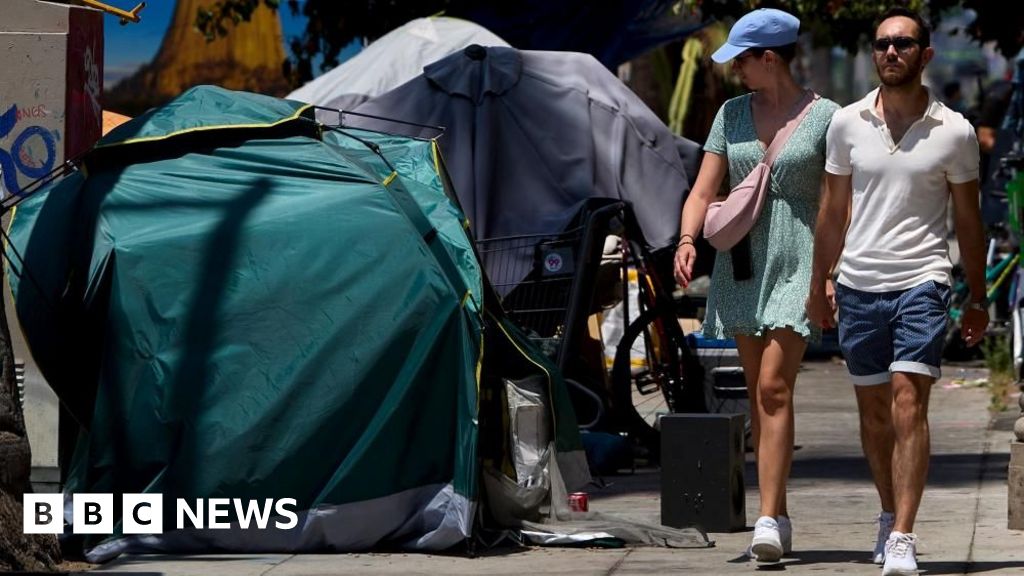The high court’s ruling is already having a ripple effect on cities across the country, which have been emboldened to take harsher measures to clear out homeless camps that have grown in the aftermath of the pandemic.
Many US cities have been wrestling with how to combat the growing crisis. The issue has been at the heart of recent election cycles on the West Coast, where officials have poured record amounts of money into creating shelters and building affordable housing.
Leaders face mounting pressure as long-term solutions - from housing and shelters to voluntary treatment services and eviction help - take time.
“It’s not easy and it will take a time to put into place solutions that work, so there’s a little bit of political theatre going on here," Scout Katovich, an attorney who focuses on these issues for the American Civil Liberties Union (ACLU), told the BBC.
"Politicians want to be able to say they’re doing something,”



Yes. CA only has enough beds for half of the unhoused population, but significantly less than half of the unhoused population is claiming a bed.
For example, even though San Francisco and Oakland have fewer beds than unhoused people, last year SF had 10% of its beds empty and a few years before that, Oakland was coming in at 36% vacant. I don’t know what the current numbers are.
I don’t agree with this policy, but CA wants to jail people when there is a vacancy and someone is refusing to take the bed. Before this court ruling, CA could not do that.
Ah, I understand now. Ya, that’s not good. And I know what you mean about some shelters being less than the streets. Like, not personally, but I’ve heard stories about lots of thefts in those places, or things like that.